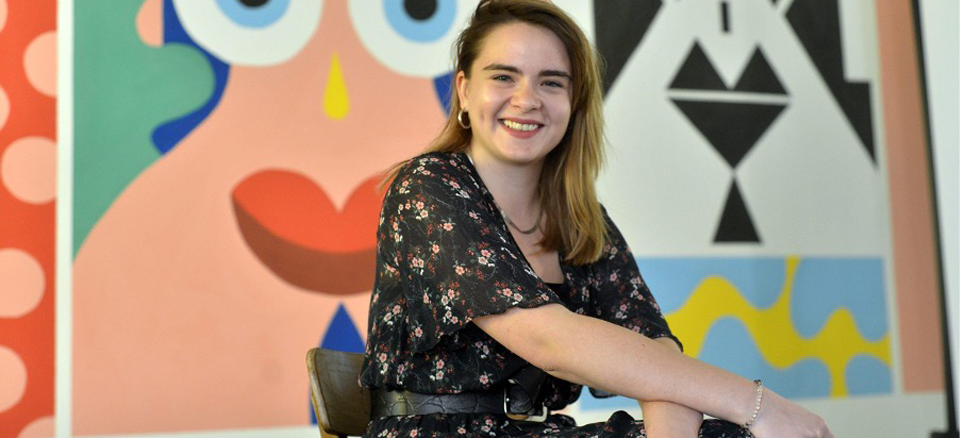“YOUNG&DIVERSE“ PODCAST WITH HANA CURAK- Feminist meme activist from “Sve su to vještice“
March 8, 2021
In the first podcast produced as part of Reporting Diversity Network 2.0 you can hear Hana Curak talking about patriarchy, sexism, media as well as her activism. Hana Curak is a feminist meme blogger, creator of the meme page “Sve su to vjestice“ (“It’s all witches“), that uses memes in her struggles for gender equality. She is currently based in Berlin, Germany, as a sociology researcher, but originally comes from Sarajevo, Bosnia and Herzegovina.
Feminist activist as a response to the patriarchal setting in the Western Balkans
Hana founded the meme page “Sve su to vjestice“ when she was 19 as a response to living in extremely patriarchal setting in the Western Balkans. She was raised in a feminist family which made her realise how much the patriarchy around her seemed ridiculous at that time. Hana has a political stance with here meme activism. When asked what witches mean to Hana, she responds:
“In our post-Yugoslav space “vjestice“or witches basically refers to any woman that doesn’t go in line with patriarchal constellations. For me, the term is very political. A witch can mean many things. It can be something that people identify with magic, but for me it is this extremely political, empowering and feminist term.“
When asked what are the biggest problems for women in the Western Balkans regions, Hana replies “Patriarchy, baby“ referring to her meme with Simone de Beauvoir.
“Our culture is based on trauma primarily and there is a lot of what we have to be careful about and we have to address, and systematically we are not addressing it for 20 years. There is also insistence on tradition, which of course exists elsewhere, but for some reasons here because of (I guess) ethno-national tendencies that are imported and took fertile soil, this became particularly important. From these problems starts violence against women, but other things as well – from small things mentioned in Vjestice memes to really big issues that should be addressed systematically.
Diversifying the male-dominated meme scene
The page “Sve su to vjestice“ and the meme activism started as Hana realised that it was all male humor in the meme scene that developed rapidly around 2010. Her page came as a response to sexism and the memes that, at the time, glorified the male experience, while female experience is left behind. I wanted to make something different.
Hana has her own specific approach when choosing characters for her memes which are both important for her personally but have additional social meaning. Simone de Beauvoir is often featured in her memes, as Hana explains, because of her magnificent facial expression (as well as the fact there is so many images of her) and her historical importance as the most recognised feminist idol.
“In the beginning it all had meaning, there was Marx who represented a specific kind of guy to meet if you are a lefty in Bosnia or Serbia especially. This chauvinist lefty guys. There was Sartre, because of Simon mostly. Virginia Wolf is my favorite character. Reading Virginia’s novels I noticed how funny she was and that resonated with me. I identify with that character the most and I really try to make caricature of myself through that. At some point, I started using other images, but I paid attention to who they were in real life and what I wanted to do with them.“
At the beginning when Hana started with her meme page, she did not have clear idea of who she wanted to target at her specific audience. Later, during her meme activism realised exactly who will be her audience:
“I didn’t knew my page was going to become big. Once it did, I knew I didn’t want to reach the usual suspects. A lot of feminist who were profiling at that point were around me. I always strived to reach people who have no idea what feminism is. Also, people who are against it to a point- but not radically or politically, but just because of ignorance. Most of my audience is young, unemployed moms, a lot of moms in general of all ages, also a lot of girls from Bosnia, Serbia or Croatia who had no idea what I am taking about. This is the most rewarding audience for me.“
Hana believes that the representation of women in media is worrying and that media reflect the patriarchal culture. She recalls the case of Milena Radulovic coming with accusation against her acting teacher who raped her repeatedly which shocked her and reconfirmed the position of women in the media, and in general within societies in the Western Balkans.
Women are still ‘the other’ in the mainstream media and mainstream culture in general, she explains, and when you are regarded as the other there is a number of strategies that people use to persist on you otherness and place you in position of no power.
Listen to the full conversation that Ivana Jovanovic had with Hana Curak on our Young & Diverse podcast.
Photo credit: CROPIX
The podcast, as part of the Reporting Diversity Network 2.0, is funded by the European Union, Balkan Trust for Democracy, a project of the German Marshall Fund of the United States, and the Royal Norwegian Embassy in Belgrade.
The content of the podcast does not necessarily reflect the views of the European Union, Royal Norwegian Embassy, the Balkan Trust for Democracy, the German Marshall Fund of the United States, or its partners.



